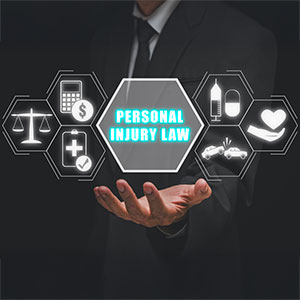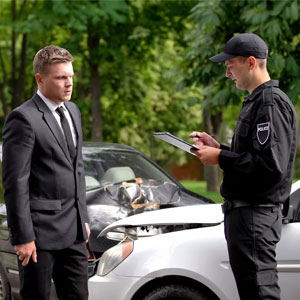What A Jury Is Not Told
In Florida, There Are Things That We Are Not Allowed To Say To The Jury
There is a growing trend today that nothing should be kept hidden from juries because some have lost trust in the system. My experience of juries is that they are naturally curious and skeptical at the same time. They are told by the judge that they are not supposed to speculate as to what they have not been told, but human nature is to do it anyway. Under Florida law, there are a number of things that we are not allowed to talk about regardless of how much a jury wants to know.
You Cannot Even Mention The Word Insurance At A Trial
The first thing that comes to mind that a personal injury and medical malpractice lawyer cannot say to a jury is whether there is liability insurance. Even mentioning the word “insurance” in the context of liability is enough to cause a mistrial. The traditional legal thinking behind this is that if the jury is told that there is insurance, then the jury will be biased in favor of the plaintiff just because the insurance company pays for the defendant. Since this has always been the law, there is no way to know for sure whether this fear is actually true or not.
Jurors today are more educated than ever and have all been exposed to courtroom drama on TV and on the Internet. Virtually everyone has heard about the OJ Simpson trial and the McDonald’s hot coffee trial. They are also very keenly aware that personal injury law is a very monetized business because of all the advertising that goes on.
Jurors are smart enough to figure out that a personal injury lawyer is most likely only going to take a case to trial where there is insurance involved (or at least an insurance bad faith issue for which the plaintiff can collect). Why would someone go through the expense and extensive preparation process to take a case to trial if there wasn’t a real chance at collecting something?
Likewise, because you can’t mention insurance, the jury is also never informed of how much insurance there is as well.
What Gets Set-Off Against The Jury Verdict?
In Florida, the defendant doesn’t write a check for whatever the jury awards. After the jury returns their verdict and goes home, the judge takes into account a number of things to reduce the amount that the plaintiff actually collects. This is called a “set-off.” In legal terms, to “set-0ff” means to subtract. Aside from cases of comparative fault (where the plaintiff may have some liability for their own injury), the jury is never told what amounts will be “set-off” or subtracted from the verdict. Likewise, a jury who awards $10,000 to a plaintiff might expect that the plaintiff will actually receive that $10,000.
Unless you have been a litigant to a personal injury case before, you probably don’t know that you get to ask the jury for the total amount of your medical bills and the jury makes their award based on that amount, but after the trial the judge will strike out of that number any amount that the plaintiff is not responsible to pay, including PIP/no-fault insurance, “write-offs,” and “write-downs” that are required under contracts with health insurance companies (“collateral sources”), Medicare, and Medicaid.
When this happens, the jury may have thought that they were awarding a generous sum of money to the plaintiff but in reality they only awarded a paltry sum and may have even returned a verdict for the defendant based on the numbers.
The unfortunate thing about our civil justice system is that it is essentially impossible for a jury to calculate how much they are actually giving an injured person.
Taxable Costs And Attorney Fees
The jury is also not made aware of “taxable cost” and attorney fees. In a personal injury case in Florida, a successful plaintiff can ask the judge to add back into the judgment the plaintiff’s “taxable costs.” Taxable costs are things were actually used to obtain the verdict, such as court reporters, deposition transcripts, and expert witnesses.
On the other hand, there is generally not a right to recoup your attorney fees in a personal injury case just because you won. To get attorney fees in a Florida personal injury case, you need some other mechanism, such as proposals for settlement/offers of judgment or a coverage denial under section 627.428, Fla. Stat., in order to get awarded compensation for your attorney fees as the plaintiff.
Whether The Defendant Has Assets
This is a double whammy. Florida courts do not allow a plaintiff to discover a defendant’s assets until after judgment has been entered. As the plaintiff, you will not know for sure what a defendant can pay (in addition to insurance coverage) to satisfy a serious injury or wrongful death case where the damages are truly immeasurable. The only exception to this is when you have a claim for punitive damages.
When punitive damages are part of the case, then a judge can allow a plaintiff do some discovery and present some evidence to the jury on that defendant’s ability to pay. The only reason that this evidence is allowed in such cases is because the jury has to decide what is enough to “punish” the defendant for bad conduct. Likewise, what will punish a working person severely may be less than an hour of profit to a mega-corporation.
The Police Report And Who Received A Ticket
In Florida, police reports are considered “privileged” and are not admissible evidence in court. Further, the statements made to police by the drivers involved are generally also privileged as well. This means that someone can tell the police that they were texting and driving right before an accident and the police officer can write that down in the report, but when you finally get that person under oath for a deposition or trial testimony, that person can change what they said and you cannot use the report against them.
You cannot even call the police officer who heard the statement as a witness. This is known as the “accident report privilege.”
The accident report privilege in Florida is found in section 316.066, Fla. Stat. and says:
…each crash report made by a person involved in a crash and any statement made by such person to a law enforcement officer for the purpose of completing a crash report required by this section shall be without prejudice to the individual so reporting. Such report or statement may not be used as evidence in any trial, civil or criminal.
You also don’t get to tell the jury whether the defendant received a traffic citation and for what violation. Section 316.650, Fla. Stat. specifically says:
Such citations shall not be admissible evidence in any trial, except when used as evidence of falsification, forgery, uttering, fraud, or perjury, or when used as physical evidence resulting from a forensic examination of the citation.
In order to win your case in court, you need to be able to prove (with evidence) what the other driver did wrong. In many cases it may seem obvious, however, there are many cases where insurance attorneys for the defense have challenged whether their client did anything wrong even though they know that their client received a ticket and paid it.
Settlement Offers And Who Is Being Unreasonable
If you ever get the pleasure of serving on a jury at a real trial, you will unfortunately not be told whether any settlement offers have been made or what they were. Section 90.408, Fla. Stat. specifically takes this off the table when it says:
Evidence of an offer to compromise a claim which was disputed as to validity or amount, as well as any relevant conduct or statements made in negotiations concerning a compromise, is inadmissible to prove liability or absence of liability for the claim or its value.
When jurors are polled after a trial, they will often have a desire to know why the case didn’t settle. It is natural to want to have influence over that process and then respond accordingly with the verdict. However, this is not how it works. The insurance company for defense can be as unreasonably as anything but you can never tell the jury. Doing so is considered a mistrial.
Hire An Experienced Attorney
The list of what you cannot say in court goes on and on, but they all figure into what your case is actually worth. To do your case the right way, you will need an experienced personal injury attorney to help you bring your case to court. We serve clients with personal injury and medical malpractice cases in Polk County including Lakeland, Winter Haven, Bartow, and Haines City, Florida.


